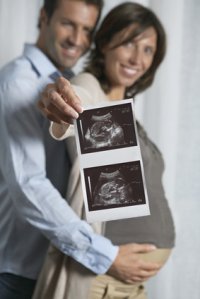Vitamin D supplements may improve fertility in men and women
 In May 2017, new data linking vitamin D and fertility was presented at the European Congress of Endocrinology (ECE) in Lisbon. The new findings contribute to our understanding of vitamin D’s impact on male testosterone levels and of our knowledge about whether vitamin D supplements may actually improve fertility in both sexes. Involuntary infertility, a widespread problem, may be a result of many factors, but if the reason is a vitamin D deficiency, it is easy to treat with increased exposure to sunlight and the use of supplements to keep vitamin D levels optimal all year round.
In May 2017, new data linking vitamin D and fertility was presented at the European Congress of Endocrinology (ECE) in Lisbon. The new findings contribute to our understanding of vitamin D’s impact on male testosterone levels and of our knowledge about whether vitamin D supplements may actually improve fertility in both sexes. Involuntary infertility, a widespread problem, may be a result of many factors, but if the reason is a vitamin D deficiency, it is easy to treat with increased exposure to sunlight and the use of supplements to keep vitamin D levels optimal all year round.
Fertility rates have decreased in men and women, and an estimated 80% of the European population lacks vitamin D. Is there a relation? Our diet only provides minimal amounts of the nutrient, so the summer sun is our primary source. However, many people avoid the sun or use sunscreen that blocks the vitamin D synthesis in the skin. Other than that, there is a relation between obesity and lack of vitamin D, which means that many overweight people have an increased need for the vitamin. The same is the case with diabetics who have difficulty with activating vitamin D in the body.
Vitamin D is like a hormone with many functions
Vitamin D is actually viewed as a fat-soluble hormone. Just like steroid hormones (sex hormones and the stress hormone cortisol), vitamin D is synthesized from cholesterol. Most of the body’s cells have vitamin D receptors, which is why the vitamin plays a role in bone strength, the immune system, muscles, cardiovascular system, mood, cancer prevention, and a number of things. It therefore makes perfect sense that science is zooming in on vitamin D’s role in female fertility and male sperm quality, as both have deteriorated in recent years as a result of factors that are yet unknown.
Approximately 10-15% of all couples trying to conceive are unable to. Also, about 10 percent of women of childbearing age suffer from PCOS (polycystic ovary syndrome) that prevents them from becoming pregnant.
Research in vitamin D, fertility, and metabolic disorders
Doctor Elisabeth Lechbaum from Medical University of Graz in Austria has conducted several studies of vitamin D and its role in various aspects that relate to male and female fertility. Vitamin D is of importance to the sex hormones in both men and women. It is important for the quality of the woman’s egg cells and the maturation of the egg prior to ovulation. In a similar manner, vitamin D is important for male testosterone levels and the production and quality of sperm cells.
In vitro fertility studies confirm that vitamin D levels influence the outcome, and the nutrient is also vital for certain processes in women with PCOS and endometriosis. Other studies have demonstrated that vitamin D supplements have a positive effect in certain stages of egg cell maturation and in the regulation of the menstrual cycle in women with PCOS. Finally, there are studies to suggest that vitamin D supplements may be an advantage for overweight women with related complications such as metabolic syndrome and type 2 diabetes. As such, the evidence points at vitamin D deficiency as having a key role in the development of overweight and metabolic disorders.
There is also evidence that vitamin D supplements may improve male testosterone levels and sperm quality. Recent studies suggest that vitamin D supplements may be useful for couples undergoing IVF (In Vitro Fertilization).
Future studies
Although several animal and human studies suggest that vitamin D deficiency has a negative impact on fertility, there is still a need for larger, randomized, controlled studies to determine how vitamin D supplements affect male and female fertility.
According to Dr. Lechbaum, scientists are still discussing what levels of vitamin D are optimal. However, considering vitamin D’s role in relation to fertility, it makes sense to give vitamin D supplements as a new, simple, and safe way of improving young couples’ chances of having a baby.
Researchers are about to end a large, randomized, controlled study of women with and without hormone imbalances. Depending on the results of this study, the researchers plan to find out more about optimal vitamin D levels in the blood and the optimal doses for supplementation.
Vitamin D deficiency and poor utilization may be caused by:
|
How much vitamin D do we really need?
The dietary reference intake level (RI) for vitamin D for adults is 10 micrograms, but many researchers believe that the actual need for vitamin D is much higher. They recommend between 30 to 100 micrograms per day. It is easy to produce that amount on a nice sunny day during summer, but in the winter period, we need to take a supplement, as a normal healthy diet only provides limited amounts of the nutrient.
Vitamin D, supplementation, and absorption
Vitamin D is a fat-soluble nutrient, which is why we humans are best able to utilize the nutrient if we take a supplement that contains vitamin D in some kind of oil.
References:
European Society of Endocrinology. ScienceDaily. May 2017
https://www.sciencedaily.com/releases/2017/05/170523084302.htm
Iowa State University: New promise for diabetics with vitamin D-deficiency. ScienceDaily. 2016
https://www.sciencedaily.com/releases/2016/02/160209090438.htm
Flere relevante artikler om barnløshed på www.healthandscience.eu er:
PCOS og barnløshed kan afhjælpes med kostændringer og et enkelt kosttilskud
http://healthandscience.eu/index.php?lang=da
Dårlig sædkvalitet er hyppig årsag til barnløshed
http://healthandscience.eu/index.php?option=com_content&view=article&id=1157:darlig-saedkvalitet-er-hyppig-arsag-til-barnloshed&catid=20&lang=da&Itemid=269
Search for more information...
- Created on .








